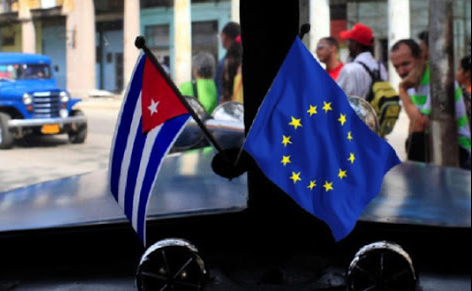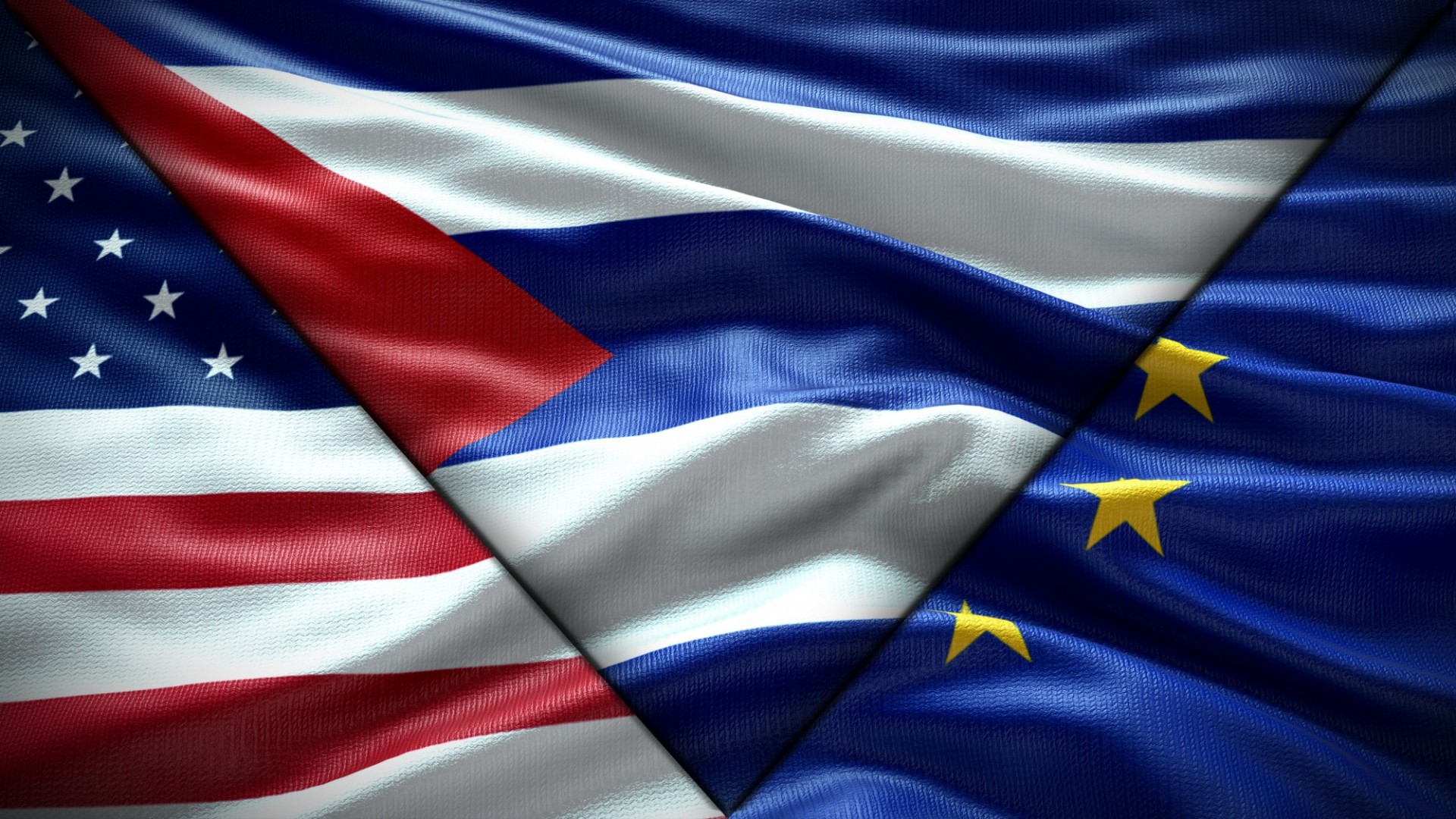The European Union and Cuba: A Low Profile Strategic Partnership
Professor of Political Science and International Relations, Autonomous University of Madrid (UAM)
If the United States wants to influence Cuba, it should follow the example of the European Union. Despite its low profile on the island, the European Union has adopted an intelligent policy of constructive engagement.
Cuba is going through one of the most difficult moments in its history. The confluence of U.S. sanctions, declining tourism, low levels of productivity, and constant deterioration in living conditions—all in a post-pandemic context—has led to even more uncertainty than in previous years. Moreover, the current post-revolutionary government lacks the legitimacy of Cuba’s historical leadership and has little capacity to implement the policies needed to confront the country’s myriad problems.
Despite the odds, Cuba and the European Union (EU) have strengthened and expanded their relationship without major clashes, unlike in the past. However, this honeymoon has gone virtually unnoticed on both sides of the Atlantic.
The EU, Cuba’s Primary Foreign Partner
Over the last decade, the EU has become Cuba’s main economic and political partner and its main source of trade revenue, far ahead of its traditional strategic and ideological allies, China and Russia.
In 2021, the EU and its 27 member states represented one-third of Cuba’s total trade: 33% compared to 11.7% with China. The member nations consolidated their direct investment in Cuba, represented the second major source of tourism to Cuba, and the EU became the primary donor to Cuba of Official Development Assistance (ODA), providing a total of about 100 million euros since the 1990s. [1]
Since Cuba signed a Political Dialogue and Cooperation Agreement (PDCA) with the European Union in 2016, it has had full access to all the instruments the EU offers to its Latin American partners, including regional programs such as Erasmus Mundo and other cooperation mechanisms.
Cuba engages in regular political dialogue with the EU at multiple levels, and the partners meet frequently within the institutional framework of three sectoral fora: agriculture, climate change, and energy, as well as with regard to five PDCA-established topics: small arms, disarmament, sustainable development, human rights, and unilateral measures. There are 18 EU embassies in Havana, including the union’s own delegation.
Thanks to this regular political exchange through the PDCA, Cuba has achieved a special status in EU foreign relations, similar to that accorded to Chile and Mexico. The main difference is that the PDCA does not cover free trade; instead, it is a third-generation agreement used prior to the Free Trade Plus agreements (dialogue and cooperation) that the EU entered into with Central America, the Caribbean, Chile, Colombia, Ecuador, Mexico, and Peru.
Spain stands out among EU countries for its presence and influence in Cuba due to the historical, family, cultural, and economic ties to the country that was its last colony, along with the Philippines and Puerto Rico. And Cuban citizens with Spanish ancestors can now apply for Spanish nationality and leave the country under the Democratic Memory Law adopted on October 20, 2022. Some 200,000 Cubans are expected to apply. The principal response of Cubans to deal with the current crisis has been to flee the island: more than 300,000 Cubans emigrated to the United States in 2022. This exodus exceeds the Mariel Boatlift in 1980 and the Cuban Rafter Crisis in 1994, combined, and is expected to grow, primarily affecting immigration to Spain and the United States.
Low Mutual Visibility
Despite being its primary economic partner, the EU is not Cuba’s main foreign ally. Cuba has granted the EU little importance in its foreign policy, given its disproportionate commercial presence and economic influence. At the same time, since 2016, Cuba has lost prominence in EU foreign policy.
First, Cuban foreign policy remains anchored in (and obsessed with) its conflictual relationship with the United States, the country in which it places its hopes for the future. Meanwhile, the U.S. embargo/blockade continues to legitimize the Cuban regime by enabling Cuban authorities to justify the economic hardships and one-party system, which it presents as the only sure bet for preserving national sovereignty in the face of external threats. Sixty years of sanctions have served as a major incentive to maintain the current political regime.
The United States is omnipresent in Cuban foreign policy, regardless of the status of bilateral relations between those two nations. Almost never does Cuba portray the U.S. positively. Cuban leaders constantly denounce the United States’ unilateral blockade (bloqueo), with which Cuba nonetheless has coexisted for more than six decades. The blockade continues to block Cuba from access to international credit and patents and hinder tourism and investment, not to mention the uncertainty it creates for property rights in Cuba, in particular with respect to those properties that were foreign-owned until they were nationalized following the 1959 Revolution.

However, several measures have created exceptions to the embargo, creating spaces for cooperation and bilateral dialogue between the U.S. and Cuba. In 2021, albeit with the “blockade” in place, Cuba’s food purchases from the United States represented 6.5% of its import export activity.[2] The fact that Cuba purchases more food from the United States than Venezuela, Cuba’s main Latin American strategic partner, is the result of the end of the ban on importing food and medicines that had been authorized twenty years ago by President Bill Clinton.
Other examples of cooperation are the migration agreement entered into between the two countries in 1994 and the increased contact and exchanges among civil society organizations of the two countries. Another is the U.S. government permitting U.S. citizens and residents to send remittances to Cuba, which represents that country’s second largest source of foreign currency.
In December 2022, the sectoral dialogues between Cuba and the EU had to compete for attention with U.S. politicians and academics whose sporadic visits receive disproportionate attention. On the other hand, European Parliament (EP) delegations have been frequently criticized or even expelled for being critical of the human rights situation in Cuba. This has never happened to a North American congressperson in Cuba. Cuba devotes much more attention to improving relations with its northern neighbor than to its relationship with Europe, a relationship that is reported in the local press only when a conflict arises, such as after the protests in July 2021.
Paradoxically, the United States is given a much wider margin to address the issue of political rights than the European Union. Unlike President Obama when he visited the island, EU leaders have never been able to hold separate meetings, during the same visit to Cuba, with both opponents and members of the government without provoking a bilateral diplomatic conflict.
Second, unlike other foreign partners, the EU is not an ideological ally of Cuba. It has been viewed warily and as a close partner of the United States, with similar positions including democracy promotion. Were the Cuban press to cover the frequent dialogues on human rights that the EU holds with Cuba, it could spark hope in the population for greater respect by the Cuban authorities for political pluralism and dissident voices.
Third, to avoid claims that it is appeasing its enemy to the North, Cuba gives preference to South-South cooperation. Thus, the official press has granted greater visibility to relations with countries such as China, Russia, Turkey, and Algeria, all of which were visited by President Miguel Díaz-Canel in November 2022, and which share with Cuba ideological positions and criticize U.S. hegemony.
Besides their ideological affinities, those countries promise economic benefits that the EU cannot offer Cuba, particularly the energy shipments that Cuba needs. Another example of Cuba’s political pragmatism was the recent swap of debt relief for its recognition of the Russian-occupied territories in Ukraine during bilateral meetings with President Vladimir Putin. That exchange strategy would not work in reducing Cuba’s debt with the Paris Club.
From the European perspective, Cuba ceased to hold a special place on the EU’s foreign agenda when the EU decided to eliminate, in 2016, the EU Common Position on Cuba, which had been in force between 1996 and 2016. This policy position required annual renewal and debate in the EU Council, delaying for two years the signing of the PDCA that had been finalized in 2014. [3] Since 2016, Cuba has been integrated into the EU’s Latin American policy and is no longer considered for special treatment because of its one-party system that had previously impeded relations.
A second important reason for Cuba’s low visibility in Brussels foreign relations and cooperation is Brussels desire to avoid transatlantic conflict. On the one hand, the EU member states do condemn the U.S. sanctions each year before the General Assembly of the United Nations, and the European Commission issued a blocking order against the extraterritorial measures of the Cuban Democracy Act (Torricelli Act) and the Helms-Burton Act. Nonetheless, the United States and the EU form a strategic alliance and are united through NATO (the North Atlantic Treaty Organization). They are of the same mind on Russia’s war against Ukraine. Thus, it does not benefit the EU to give its activities in Cuba a high profile given that it recognized the occupied Russian territories in Ukraine to avoid paying Cuban debts to Russia, thus positioning itself on Putin’s side of the armed conflict.
A third reason is political disagreement within the EU itself. Actors such as the European Parliament (EP), human rights non-governmental organizations (NGOs), and some Eastern and Northern European countries have taken a more critical view of democratic conditionality and requested that the EU abandon dialogue and cooperation with the Cuban government.
As a reaction to the harsh repression of the protests that took place on July 11, 2001, the European Parliament issued a resolution that September calling for the suspension of the PDCA and taking selective measures against members of the Cuban government. This was in accordance with the policy that the EU adopted in Venezuela when it sanctioned some political leaders, recognized opposition leader Juan Guaidó as the legitimate president, and imposed an arms embargo.
While transatlantic policies converge on Venezuela, the United States and the EU have opposite approaches towards Cuba. At the moment, in the EU a policy of constructive engagement towards the Cuban regime prevails, consistent to the preferences of the European Commission, the High Representative of the EU for Foreign Affairs and Security Policy, Josep Borrell, and most member states including Spain, France, and Germany.
A Zero-Sum Game: Two Policies at Cross-purposes
In 2023, Cuba and the European Union (EU) will celebrate the 35th anniversary of their diplomatic relations, despite many ups and downs over the years. Unlike United States, the EU seems to Cuba a more reliable and constant partner, but not necessarily a more attractive one. On the other hand, the bilateral Cuba-EU relationship has been like that of an old married couple: they know each other well and have coexisted for a long time, frequently falling back into the same old routines and mutual neglect.
The risk to the EU of continuing in a low-profile relationship with Cuba is that it could be forgotten if a new ally emerges, in this case the United States. This potential new alliance is, without a doubt, what Cuba is counting on in order to overcome the current economic crisis.
Sooner or later, the United States and the Cuban-American community there will once again occupy the place that the EU has earned in Cuba through its more intelligent policy of linkage and leverage of its material and cultural heft, much more useful instruments to accompany and promote the cautious opening Cuba initiated in the 1990s. Unilateral U.S. sanctions only promote entrenchment of the leadership in Cuba and enhance the power of a small lobby of Cuban-Americans who have hijacked U.S.-Cuba policy for decades.
The unintentional result of the discrepant policies of the EU and Cuba is that the EU (and the countries that maintain full relations with Cuba discussed above) ameliorate the impact of the U.S. embargo. As a whole, the constructive engagement of Brussels and the sanctions from Washington have contributed to keeping the revolutionary regime in power, refusing to concede to a democratic opening. In this sense, the democracy-promoting policies of the United States and the EU have been highly counterproductive in Cuba.
Europe has opted for a policy of presence and influence that, despite criticism that they are engaging in a dialogue with the dictatorship, helps the opening process underway. If the United States wants to influence changes on the island, it should adopt a more intelligent policy of constructive engagement following in the example of the EU, which has a strong position and a large presence in the country.
[1] Romero, Antonio F.: El Acuerdo de Diálogo Político y Cooperación y las relaciones entre la Unión Europea y Cuba, Working documents, Fundación Carolina, Madrid, 2020.
[2] https://webgate.ec.europa.eu/isdb_results/factsheets/country/details_cuba_en.pdf

Susanne Gratius is a professor of Political Science and International Relations at the Autonomous University of Madrid (UAM). Previously she was an associate professor in the Department of International Relations at the Complutense University of Madrid (UCM) and senior researcher at the Foundation for International Relations and Foreign Dialogue (FRIDE) from 2011–2013. Her professional career includes extensive experience at various European think tanks (GIGA-Hamburg, SWP-Berlin, IRELA-Madrid) and at public and international organizations in Germany (GIZ, BMZ, AA, EU-LAC Foundation) and Spain (MAEC, SEGIB).

